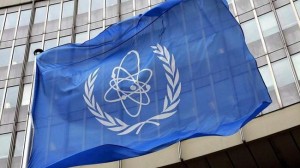 (Reuters) - The U.N. nuclear watchdog said on Tuesday it will hold a new meeting with�Iran�on May 15 aimed at enabling its inspectors to resume a stalled investigation into suspected nuclear bomb research by the Islamic state.
(Reuters) - The U.N. nuclear watchdog said on Tuesday it will hold a new meeting with�Iran�on May 15 aimed at enabling its inspectors to resume a stalled investigation into suspected nuclear bomb research by the Islamic state.The International Atomic Energy Agency has been trying for more than a year to coax�Iran�into granting IAEA officials the access to sites, documents and officials they want for their inquiry. Tehran says its nuclear program is entirely peaceful.
The May meeting will be the 10th round of talks since early 2012 in the search for a framework accord between the two sides that would set the terms for how the IAEA should conduct its inquiry, so far without success.
Western diplomats accuse Iran of stonewalling and some say the IAEA may soon need to get tougher with Tehran, but the Vienna-based U.N. agency has said it is committed to continuing dialogue with Iranian officials.
"The agency and Iran have agreed to hold further talks in Vienna on 15 May," IAEA spokeswoman Gill Tudor said.
The meeting is "aimed at finalizing a structured approach to resolving outstanding issues related to the possible military dimensions of Iran's nuclear program", she said.
It will take place about a week before the IAEA is expected to issue its next report on Iran's nuclear program, and ahead of a June 3-7 meeting of the IAEA's 35-nation governing board, when the Iranian nuclear issue will again be on the agenda.
The IAEA-Iran talks are separate from, but have an important bearing on, diplomatic negotiations between Tehran and six world powers aimed at a broad settlement to the decade-old dispute and reduce the risk of a new Middle East war.
Western powers suspect Iran is trying to develop the capability to produce nuclear weapons under the guise of a declared civilian atomic energy program. Iran denies this, saying it seeks only electricity from uranium enrichment.
But its refusal to curb sensitive nuclear activity with both civilian and military applications and its lack of openness with IAEA inspectors have drawn U.N. and Western sanctions.
Israel, widely believed to be the only nuclear-armed power in the Middle East, has long hinted at possible air strikes to deny Iran any means to make a nuclear bomb.
By Reuters
The Iran Project is not responsible for the content of quoted articles.










